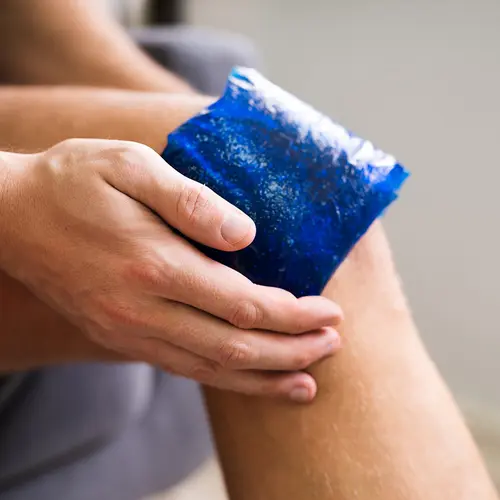By Teresa Stallone, as told to Hope Cristol
With psoriatic arthritis (PsA) comes fatigue that can be hard for people to understand. The physical aspect is relatable: lack of energy, lack of stamina. But the fatigue is mental as well, and that’s harder to explain. It’s a lack of mental energy and brain fog, too.
One example is that I need to call Medicare for both myself -- I’m 45 but on disability due to my health issues -- as well as my mother. The mental fatigue is preventing me from making the call. With things like this, I need to really comprehend what’s being said to me, and right now I lack the focus I need.
Mental and physical fatigue also keep me from doing regular household things. I’m staying with family at the moment, and I have a mini-mountain of stuff -- clothes, toiletries, everything -- behind the door in my small bedroom here. I have no energy to organize it, but just looking at it is causing me stress.
It’s a lot of energy to take care of yourself when you have a chronic illness. I’m also my mother’s caregiver, and that involves a lot of calls on her behalf. Just thinking about it all is fatiguing.
Medication helps to some extent. Since I was diagnosed in 2015, I’ve been on prednisone, methotrexate, and now a biologic, along with anti-inflammatory medications. As far as fatigue goes, I think the things that have the biggest impact are keeping my stress under control, meditation, good nutrition, and exercise.
Tricks to Tame Stress
Stress plays a role in many things, especially when you have an autoimmune disease. With stress comes tension, which can cause muscle tightness or increase inflammation. In my case, stress makes me exhausted and sore. It makes me feel like I’ve been hit by a truck. But I have found a few tricks over time that help me feel better.
Aromatherapy helps with relaxation. I may spray a scent on my pillow or apply it to my pressure points. Some aromas, like lavender, can help me relax, but I have to be careful of which blends I choose. Some scents, like rosemary, make me sick.
Music energizes me. I’m a huge Buddy Guy fan, and if I’m feeling good, I’ll find myself bebopping along. Other times, I find the music relaxing. Either way, listening to music I like is one way I recharge my mind, which in turn helps with my physical symptoms.
Social support is vital. It’s important to have friends and family who are there to listen and who understand that you may need to cancel plans at the last minute because of how you feel.
Social media reduces isolation. A chronic illness like PsA can be isolating, and that alone causes stress and fatigue. The good thing about social media is that you can reach out to the PsA community any time of day and someone will be there.
Diet and Exercise
Good nutrition and physical movement don’t look the same for everyone. What bothers or helps one person’s body may not bother another’s. I learned about this the hard way -- because I had to.
Toward the end of 2019, I had oral surgery and I could only eat soft foods for a while. My diet included cold-pressed juices, some fruit smoothies, Greek yogurt, salmon, sweet potatoes, avocado, and soft vegetables. After I recovered from surgery, I stopped eating quite so healthy and noticed a huge difference (for the worse) in how I felt. That’s made me really aware that when I put healthy things in my body, my PsA symptoms improve.
Now, I am working on a diet that suits my life and health. I’m seeking support from a nutritionist to find the right balance, since my other health conditions, including food allergies, can prevent me from eating some anti-inflammatory foods.
Besides good nutrition, another important thing is movement. Pushing through fatigue can actually help fight fatigue. I'm not saying run a marathon; a walk around the block can give you energy.
When you have inflammatory arthritis, there are days you don’t want to get out of bed and do anything. But if you push yourself just a little bit, you find that movement helps everything, your joints and your fatigue.

